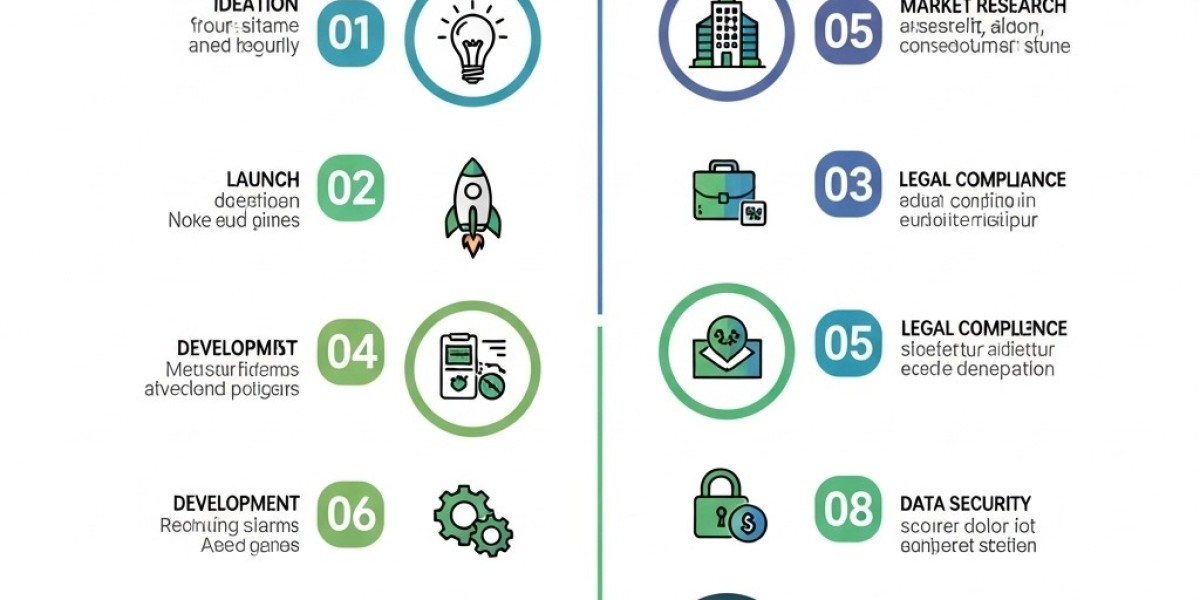Introduction
Over the last decade, online gaming in India has experienced an exponential boom, with Rummy game app development emerging as one of the most lucrative verticals. Millions of players across India enjoy Rummy as a skill-based card game that blends logic, memory, and decision-making. Unlike gambling, Rummy is recognized as a "game of skill" by the Supreme Court of India under the Public Gambling Act, 1867. This makes it legal to offer Rummy apps in most states, except where state-specific bans on online real-money games apply.
For startups and enterprises, investing in Rummy app development offers opportunities to tap into a multi-billion-dollar market. However, success in this space requires more than just coding—it involves compliance with Indian laws, robust technology, user engagement strategies, and data security.
This blog offers a comprehensive step-by-step guide to Rummy game development, tailored for both startups and enterprises looking to launch their platform responsibly and profitably.
Understanding the Legal Framework in India
Before diving into Rummy game app development, it's essential to understand the Indian government's stance on online card games:
Legal Recognition: The Supreme Court of India has repeatedly ruled that Rummy is a game of skill, not chance. Thus, it does not fall under the definition of gambling.
Central vs. State Laws: While the central law permits skill-based games, states such as Assam, Telangana, Andhra Pradesh, and Odisha currently ban online Rummy for stakes.
Regulatory Framework:
Platforms must comply with the IT Rules, 2021 (especially regarding user protection and grievance redressal).
Real-money Rummy apps must conduct KYC verification to prevent underage gaming.
Platforms must also incorporate responsible gaming features, such as self-exclusion options, deposit limits, and clear warnings.
? Tip: Startups should consult a gaming law expert before launching operations in India to avoid legal complications.
Market Research and Business Planning
The Indian online gaming industry is projected to reach ₹ 29,000 crore by 2025, and Rummy is expected to continue dominating as one of the top-grossing card games. But to stand out, startups must:
Study Competitors: Analyze leading Rummy platforms such as RummyCircle, Junglee Rummy, and Ace2Three. Identify gaps like slow withdrawals, lack of private tables, or poor UI.
Target Audience: Define whether your app will target casual players, competitive users, or professional Rummy enthusiasts.
Monetization Model:
Entry-fee tournaments
In-app purchases
Ads and sponsorships
Subscription-based premium features
? Pro Tip: Use SEMrush or Ahrefs to track keyword trends like "Rummy app development" and craft an SEO-driven launch strategy.
Choosing the Right Technology Stack
The backbone of any Rummy game app development lies in the right technology stack.
Front-End Development:
Unity 3D, Cocos2d-x, or HTML5 for cross-platform visuals.
React Native / Flutter for Android & iOS support.
Back-End Development:
Node.js, Python (Django), or Java for scalable architecture.
MySQL or MongoDB for database management.
Real-Time Gaming Engines:
WebSocket or Socket.io for instant data transmission.
Cloud hosting on AWS or Google Cloud for performance scalability.
Payment Gateway:
Razorpay, PayU, Paytm, or Stripe with UPI integration.
Must comply with RBI guidelines for secure transactions.
Security Protocols:
RNG Certification (Random Number Generator) to ensure fairness.
SSL encryption for user data safety.
AI-powered fraud detection.
Step-by-Step Rummy App Development Process
Now, let's break down the entire journey of Rummy game development from ideation to launch.
Step 1: Conceptualization & Documentation
Prepare a Game Design Document (GDD).
Include game modes (Points Rummy, Pool Rummy, Deals Rummy).
Outline UI/UX wireframes.
List technical requirements and compliance checks.
Step 2: UI/UX Design
Create engaging yet simple interfaces.
Use Indian cultural aesthetics (cards, themes, tables).
Ensure easy navigation for both beginners and pros.
Step 3: Core Development
Build multiplayer features with low latency.
Integrate RNG algorithms.
Enable private tables and tournaments.
Step 4: Payment & Wallet Integration
Add secure deposit/withdrawal options.
Support Paytm, UPI, Net Banking, Debit/Credit Cards.
Offer instant withdrawal options to enhance user trust and confidence.
Step 5: Testing & Quality Assurance
Functional Testing (game rules, wallet, tournaments).
Security Testing (including fraud prevention and data encryption).
Performance Testing (load handling for 1M+ concurrent players).
Step 6: Launch & Deployment
Deploy on Google Play Store and Apple App Store.
Ensure compliance with their gambling/real-money gaming policies.
Launch a beta version for early feedback and testing.
Step 7: Post-Launch Support & Updates
Regular bug fixing and UI enhancements.
Introduce new tournaments/events.
Add loyalty programs to retain users.
Essential Features of a Rummy Game App
To stay competitive, your app must include:
User Authentication & KYC
Multiple Rummy Variants (Points, Pool, Deals)
Private Tables for friends
Multilingual Support (Hindi, Tamil, Bengali, etc.)
Secure Payment Gateway
Live Chat Support
Leaderboard & Tournaments
Responsible Gaming Tools (deposit limits, self-exclusion)
Cost of Rummy Game App Development
The development cost depends on features, design, and complexity:
Basic Rummy App: ₹8–12 lakhs
Advanced App with Tournaments & Wallet: ₹15–25 lakhs
Enterprise-Level Platform: ₹30 lakhs+
? Pro Tip: Outsourcing to a reputed Rummy game development company in India can save costs while ensuring compliance.
Read More :- Top 7 Rummy App Features You Need in 2025 (+ Bonus)
Marketing & User Acquisition Strategies
Even the best Rummy app will fail without a solid marketing plan.
App Store Optimization (ASO): Use keywords like "Rummy game app development" in title & description.
Referral Bonuses: Encourage word-of-mouth growth.
Influencer Marketing: Collaborate with gaming YouTubers.
Social Media Ads: Target users on Facebook, Instagram, and Twitter.
SEO Blogging: Write articles targeting "rummy app development" to build organic traffic.
Challenges in Rummy Game Development
Regulatory Risks: Constantly changing state-level gaming laws.
Fraud & Cheating: Use AI algorithms for detection.
High Competition: Standing out among giants like RummyCircle.
Server Scalability: Handling millions of concurrent users.
The Future of Rummy App Development in India
The Indian real-money gaming industry is moving toward:
AI-driven personalized gaming
Blockchain integration for transparent transactions
AR/VR-based Rummy experiences
Global tournaments connecting players worldwide
Startups that adopt these innovations early will have a significant competitive advantage.
Conclusion
Rummy game app development is one of the most profitable opportunities for startups and enterprises in India, provided it is executed with the right strategy, technology, and legal compliance. By following this step-by-step guide, you can launch a secure, engaging, and scalable Rummy platform that appeals to millions of Indian users.
Remember: success in this industry isn't just about coding a game—it's about building trust, ensuring fairness, and complying with Indian government regulations. With the right approach, your Rummy app can become the next major player in India's thriving online gaming ecosystem.








